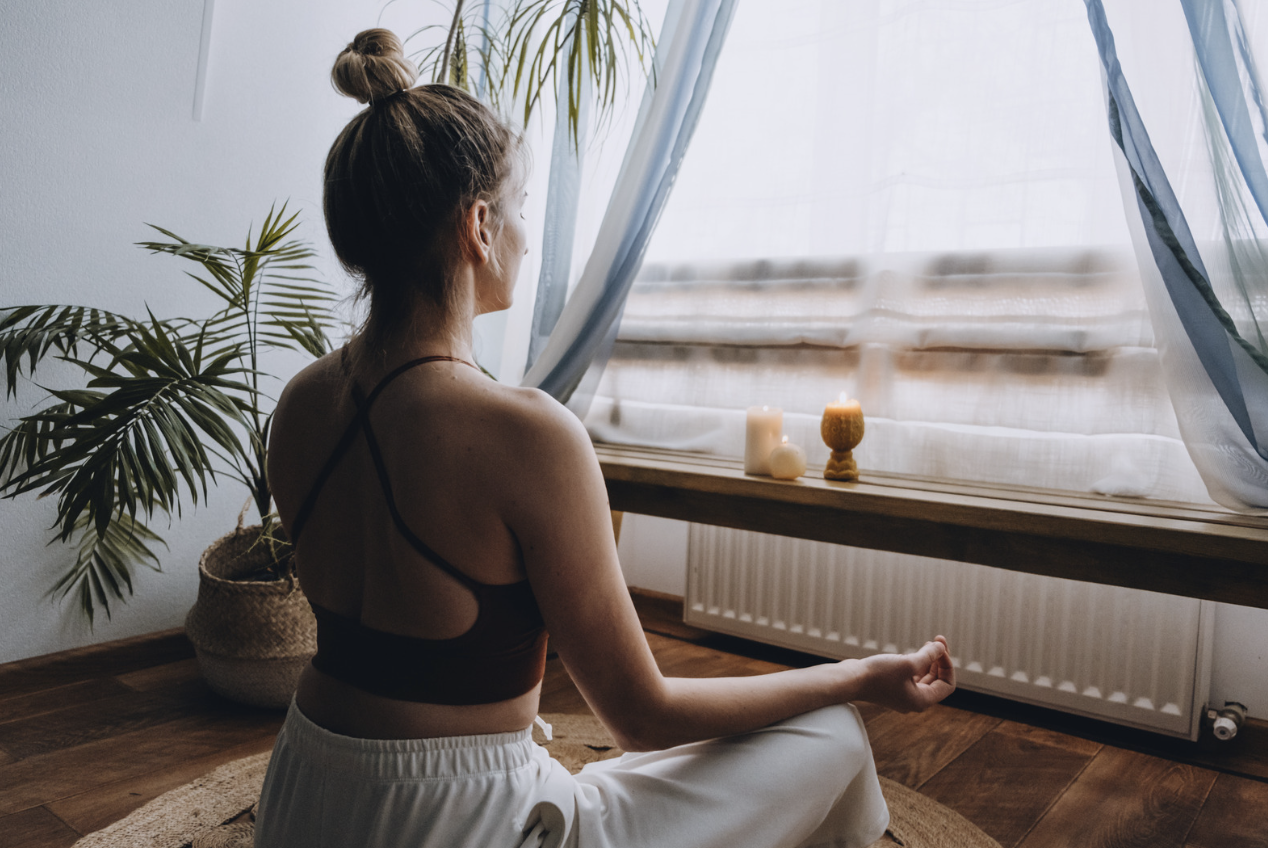
5 Stress-Relieving Exercises to Support Your Health
As we face daily challenges and situations in our life, it’s only natural to build up stress over time. Mental tension and worry can come with a variety of emotions, increasing feelings of anxiety and affecting our mental wellness if not managed.
Anxiety can affect multiple areas of our lives, influencing the way we socialise and work¹. Regular exercise to reduce stress can help regulate our nervous system and alleviate feelings of worry. Stress relieving activities are effective in short form aerobic exercise, so if you’ve got limited time to clear your head, high energy pilates and yoga are great options to boost mental wellness.
Exercises to relieve stress and anxiety are achievable for everyone, no matter where you are on your fitness journey. At FS8, we deliver a variety of workouts to benefit your mental wellbeing, improve your functional strength and increase your flexibility. Below we will explore various FS8 exercises and how they can help with stress.
Exercises to help reduce stress
Exercises to relieve stress and anxiety are found in many pilates and yoga classes. Movements that can help with our mental wellness can range from being gentle or intense, and you may find different workouts serve you for different types of stress. Listen to your body, sometimes it may require an intense workout to relieve tension, other times slower more mindful movements may bring you calm. The experts at FS8 have a variety of low impact workouts to help you de-stress and renew feelings of calm and confidence.

1. Yoga practice
Yoga is effective for reducing stress and anxiety². Typically, yoga involves gentle movements that promote a variety of health benefits, improving our cardio fitness, functional strength, and sleep patterns. The breath work and mindfulness in yoga can act as form of meditation, supporting your mental health. Some common stress relieving exercises in yoga are:
- Downward dog
- Cobra stretch
- Seated spine flex
- Cat/cow stretch
- Child’s pose
It’s important to have a variety of anxiety exercises within a yoga routine, focusing on your breath as you perform each one. Exercises like downward dog engage our entire body, challenging and loosening tension in our muscles. While exercises like the seated spine flex may be better for meditative stress relief.
2. Strength training
Resistance or strength training at a low-to-moderate intensity is reliable for decreasing feelings of anxiety³. Strength training involves a variety of exercises that sometimes involve the use of weights, elastic bands, and machines. Strength training exercises to reduce stress are:
- Squats
- Lunge (side or reverse)
- Tricep dips
- Push-ups
- Calf raises
Strength training for stress relief should engage of all your major muscle groups. Completing a full body workout can help you relax and can improve your strength, flexibility and posture. If you want to leave stress behind and increase your lean muscle mass in an uplifting environment, we recommend trying our FS8 Blast class.
3. HIIT workout
High intensity-interval training (HIIT) can decrease feelings of anxiety and stress and help with your ability to be resilient4. HIIT is intense, usually involving short bursts of explosive moments followed by brief intervals of rest. For this reason, HIIT is also great for building lean muscle, burning calories, and boosting metabolism. If you’ve got some pent-up tension, yet have energy to burn, HIIT can be a powerful stress relieving activity. Some common HIIT exercises are:
- Burpees
- Box jumps
- Jump squats
- Jumping jacks
- Kettlebell swings
Low impact HIIT exercises to reduce stress are implemented throughout FS8 workouts, as they’re great for activating your muscles in short bursts. Intense workouts are exhilarating, encouraging our bodies to produce endorphins to counter feelings of stress and stimulate calm. If you’re at the beginning of your fitness journey, HIIT is a great way to quickly boost your workout confidence and capacity.
4. Pilates exercises
Reformer and mat pilates is known for improving functional movement and individual health5 by using our body weight or light workout equipment as resistance. Pilates workouts are usually a series of repetitive yet precise movements that focus on improving full body functional movement and core strength. Below we’ll list some beginner pilates exercises to relieve stress and anxiety:
- Plank
- Pelvic curl
- Leg circles
- Swan dive
- Criss cross
One of the strengths of pilates is how dynamic yet adaptable the movements are. Pilates exercises can easily be altered to suit all individuals experiencing stress. Pilates can turn into an intense cardio and core workout or be slowed down to become a gentle and mindful experience. In your first pilates class with FS8, expect a combination of both mat and reformer pilates to support your physical and mental wellbeing.
5. Cardio training
Cardio exercise has a range of stress relieving activities that many FS8 members use within and outside of our classes. Cardio fitness can help with how we react and recover after experiencing stress6, and generally protect us from experiencing respiratory and heart problems. The great thing about cardio is how adjustable and accessible it is, common cardio workouts can be:
- Walking
- Running
- Cycling
- Swimming
- Skipping
Walking and swimming are especially useful as they are gentle on our joints yet are still effective for improving our cardio system and supporting weight loss. Light cardio exercise such as a walking can be used as active recovery, encouraging blood flow to the muscles while boosting mental wellness. For group active recovery, try out FS8 Restore class to rejuvenate your body before your next workout.
We hope you enjoyed learning about the variety of stress relieving exercises at FS8. Next, learn 5 flexibility hacks to strengthen your body.
1 https://www.ncbi.nlm.nih.gov/pmc/articles/PMC3632802/
2 https://www.ncbi.nlm.nih.gov/pmc/articles/PMC5843960/
3 https://www.ncbi.nlm.nih.gov/pmc/articles/PMC4090891/
4 https://www.ncbi.nlm.nih.gov/pmc/articles/PMC7943442/
5 https://www.ncbi.nlm.nih.gov/pmc/articles/PMC6732550/
6 https://www.ncbi.nlm.nih.gov/pmc/articles/PMC8471640/

